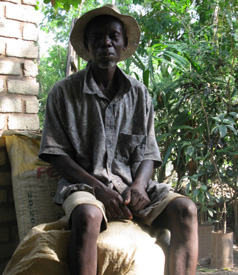I remember that!As recently as late December, Monsanto was named “company of the year” by Forbes magazine. Last week, the company earned a different accolade from Jim Cramer, the television stock market commentator. “This may be the worst stock of 2010,” he proclaimed.
 The month after Forbes did that,
Covalence did a survey that ranked Monsanto
the least ethical company in the world.
Worse than Philip Morris, Chevron, or Halliburton!
The month after Forbes did that,
Covalence did a survey that ranked Monsanto
the least ethical company in the world.
Worse than Philip Morris, Chevron, or Halliburton!
About that time we discovered Monsanto Corn Causes Liver and Kidney Damage in Rats, and that Monsanto’s GM soy causes sterility and five times higher infant mortality in hamsters.
Meanwhile, the
U.S. Department of Justice was
investigating Monsanto’s seed business. At least
seven U.S. states started their own
investigations, and later the U.S. EPA fined
Monsanto $2.5 million for selling seeds illegally in Texas counties where
they were banned.
Anyway, could all this bad news have some effect on Monsanto’s share price?
Continue reading  Since then we’ve learned that
Pesticides Linked to ADHD.
Specifically organophosphate pesticides.
Like Glysophate (RoundUp).
And that indicators of pesticides, including organophosphates,
are found in the urine of 95% of school children.
We already knew that
Glysophoate causes birth defects in humans.
Since then we’ve learned that
Pesticides Linked to ADHD.
Specifically organophosphate pesticides.
Like Glysophate (RoundUp).
And that indicators of pesticides, including organophosphates,
are found in the urine of 95% of school children.
We already knew that
Glysophoate causes birth defects in humans.






